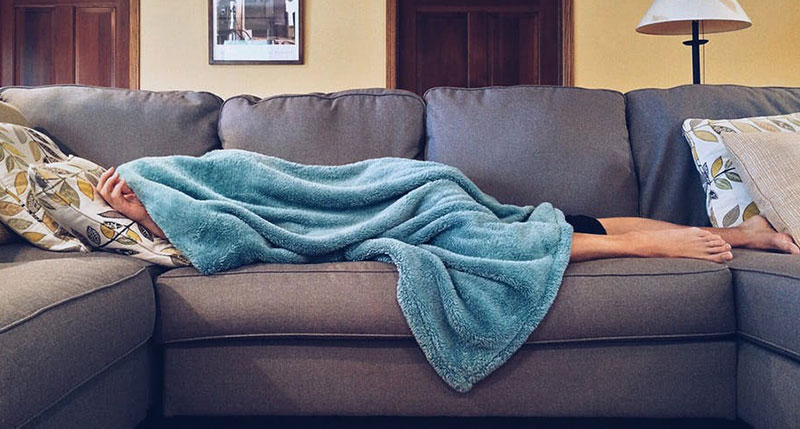On January 31, Alex Azar, the US Secretary of Health and Human Services, declared a public health emergency around the Novel Coronavirus which originated in Wuhan, China and has spread to thousands of people in multiple countries.
The good news is, your risk of contracting the Novel Coronavirus is currently low in the continental United States. But it’s a smart strategy to take action to protect yourself and your family from contracting one of the other common viruses that spread in the human population during winter, including influenza and the common cold.
Why do viruses tend to spread in winter? Well, the cold, dry air of winter is prime season for viruses: Those conditions enable them to live longer outside of their human host. And, most people have lower Vitamin D levels in the winter—because we don’t have the advantage of regular sun exposure to help our bodies make the critical vitamin that boosts immunity. Lower Vitamin D levels leave our natural defenses lowered and primed to contract a virus. Finally, the fact that we spend more time inside during winter and are around lots of other people in enclosed spaces is the third factor that leads to winter being cold and flu season.
While the flu shot is offered each year, and doctors recommend getting one, there are natural and highly effective steps you can take to reduce or minimize the risk of catching influenza or a cold this winter:
- Wash your hands more often and more thoroughly
We can’t emphasize this one enough. Every time you come back to your home or office from being out and about, wash your hands. Grocery store run? Wash your hands. Trip to your kids’ school? Wash your hands. Dropping something off at a neighbor’s house? Wash your hands. Back from the gym? Wash your hands. Are you starting to see a pattern?
Lather up with fresh, clean water and thoroughly wash with lots of friction to encourage the removal of dirt, bacteria and viruses. Focus on your palms, between fingers, beneath fingernails and also include the backs of your hands. Keep lathering for at least 20 seconds—enough time to sing “Happy Birthday” to yourself or your kids twice. Rinse with fresh running water (cold or hot doesn’t actually matter – you can’t get the water hot enough to kill germs and not burn your hands). Dry your hands with a flow of air or a clean towel.
- Ramp up Vitamin D levels
In the winter, Vitamin D levels plummet, because the sun’s UV rays—which react with our bodies to produce Vitamin D in summer—aren’t strong enough to elicit that reaction in our skin. Low Vitamin D levels correlate with weakened immune systems. Take a Vitamin D supplement every day in the winter—with between 600 and 2000 IUs (international units) per day. If you’re super-vigilant, have your Vitamin D levels tested by your doctor and monitor them to be sure your levels are high enough to ward off illnesses.
- Eat your medicine
Take an honest look at the fuel you’re providing your body with to fight off any potential virus that invades. If you’re eating mostly fast food, processed or fried foods, skimping on fresh fruits and veggies, and drinking sodas or alcoholic beverages daily, you’re not empowering your body’s natural immune system. Instead, eat the rainbow: including fresh fruits and vegetables with every meal and focusing on lean meats and simple, natural foods mean that your body is getting a variety of micronutrients that support good health. And good old chicken soup with bone broth is not only a remedy for those who have contracted a virus—it’s also a delicious immune-boosting food to enjoy at least once a week. Eat to live, don’t live to eat.
- Channel your inner germophobe
A little disinfectant goes a long way: While you know how to wash your hands thoroughly, it’s not a guarantee that everyone else does. Public surfaces such as doorknobs, countertops, phones, keyboards, bathrooms and coffee pot handles are prime real estate for infectious viruses around the home or office. Wipe these down with a solution containing bleach to kill viruses to enhance your health. Did you know that approximately 80% of viral infections happen when a person touches recently coughed-and-sneezed-upon surfaces or items recently touched by a person with the virus? Time to channel your inner germophobe! Don’t share personal items such as phones, keyboards, pens, drinkware, eating utensils, grooming items or towels.
- Sleep it off.
Another immune-boosting methodology: Treat yourself to a good night’s sleep. You know you need 7 to 8 hours of quality sleep in order to enable your body to renew and repair itself. So skip that Netflix marathon and hit the sack. A lack of sleep is just as bad as intense stress for reducing your immune response.
- Don’t skip the gym.
Regular, moderate exercise is one of the building blocks for a healthy life. When you exercise, overall health improves and therefore your immunity improves. It’s also a potent way to reduce stress, and too much stress lowers immune function. Exercise boosts circulation. Good blood flow helps your body’s immune cells circulate and do their job more effectively. And exercise can help you get a good night’s sleep, another immune-booster.
- Avoid “Sneezed Air”
Yes, that sounds strange but think about it: If a person coughs or sneezes as you’re walking by, they’ve effectively launched thousands of respiratory droplets into the ambient air. And while they may or may not be sick with an infectious virus, why risk it? To avoid inhaling potentially infectious airborne droplets, simply breathe out as you walk by—rather than breathing in. Then, exercise control over your respiratory system by waiting until you’re about 10 feet away before breathing in again. You might just avoid a virus with this simple, practical breathing strategy.

